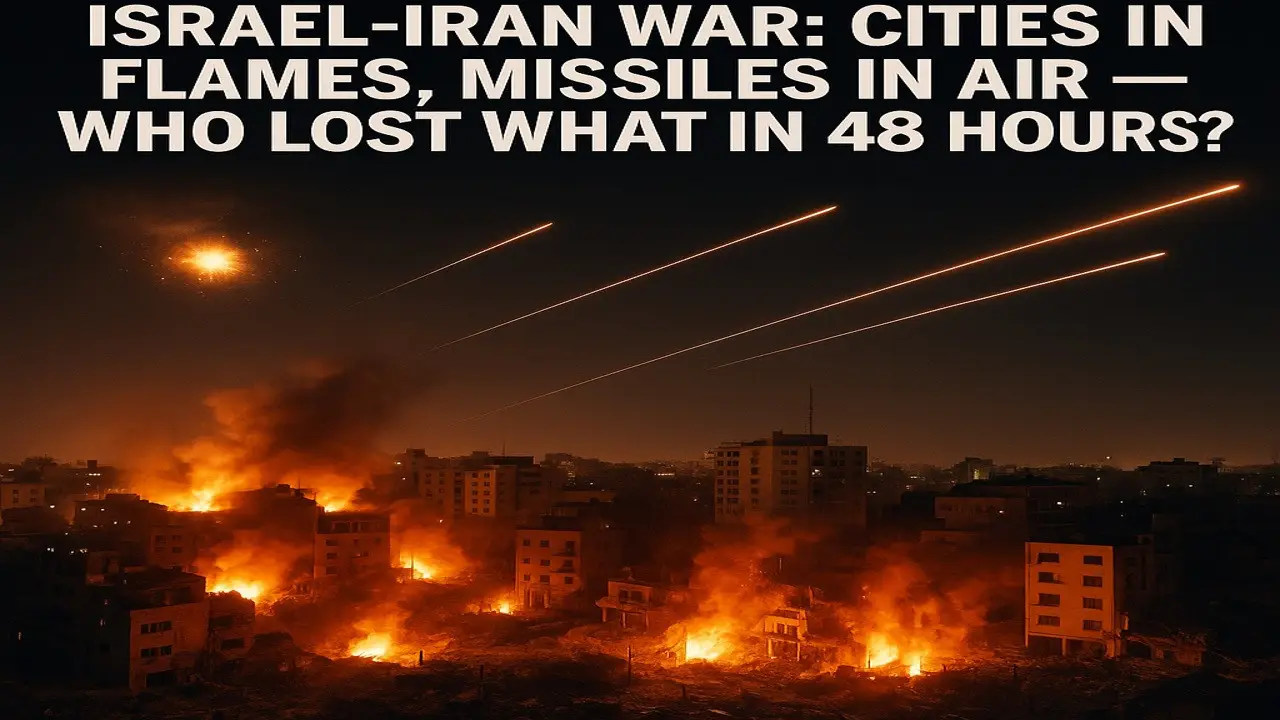
Israel_Iran_War (Social Media)
International News: West Asia is on the brink of an all-out war as tensions between Israel and Iran exploded into open conflict over the past 48 hours. In a stunning escalation, both nations launched drone and missile attacks on each other, targeting vital military and energy infrastructures. What began as a tactical exchange is now morphing into a regional crisis with global implications. Here's a detailed look at what both countries have lost—militarily, economically, and diplomatically—in just two days.
On Thursday night, Israel launched a massive airstrike campaign dubbed "Operation Rising Lion", aimed at crippling Iran’s defense and nuclear capabilities. According to Israeli defense sources, the strikes hit Iran’s Ministry of Defense, several key military installations, and strategic oil and gas facilities. A significant blow came when Phase 14 of the South Pars gas field, one of Iran’s largest natural gas projects, caught fire following a missile strike.
Iran's Ministry of Oil later confirmed that the blaze was brought under control, but 12 million cubic meters of daily gas production has been disrupted. Considering Iran produces nearly 275 billion cubic meters annually, this is a serious economic setback, especially as the country is already struggling under heavy international sanctions.
The attack also caused partial suspension of operations in Iran’s gas infrastructure, affecting local power generation and household supply chains. Though Iran does not export much gas due to sanctions, any domestic shortfall directly impacts its energy security and public sentiment.
In response, Iran launched a counter-offensive in the early hours of Friday. Over 100 missiles and drones were aimed at northern and central Israel, targeting civilian areas, communication hubs, and military installations.
The Israeli government confirmed that seven people, including a child, were killed, and more than 100 others were injured. Iran’s Revolutionary Guard claimed responsibility for the strikes, labeling them a “justified response” to Israel’s aggression.
While the Israeli Iron Dome air defense system managed to intercept the majority of incoming projectiles, some managed to slip through, triggering chaos, property damage, and fear among civilians. Schools and businesses in the targeted zones were shut down, and air travel was briefly suspended.
Beyond immediate casualties and infrastructure damage, the conflict is having ripple effects worldwide. Global energy markets are on edge due to the threat to Iran’s gas fields, which lie close to Qatar’s shared North Dome field — a key supplier of liquefied natural gas (LNG) to Europe and Asia.
Diplomatically, the UN and global powers including the U.S., China, and Russia have urged both nations to de-escalate. Yet, both Tel Aviv and Tehran remain defiant. Israeli Prime Minister Benjamin Netanyahu warned that Israel “will not allow Iran to become a nuclear threat,” while Iran’s Supreme Leader Ayatollah Khamenei declared that “any further aggression will be met with full-scale retaliation.”
In just 48 hours, both Israel and Iran have suffered human losses, economic damage, and global diplomatic pressure. While neither side seems willing to back down, the world watches nervously, hoping that these fiery skies don’t become the signal of a much wider war.





Copyright © 2026 Top Indian News
